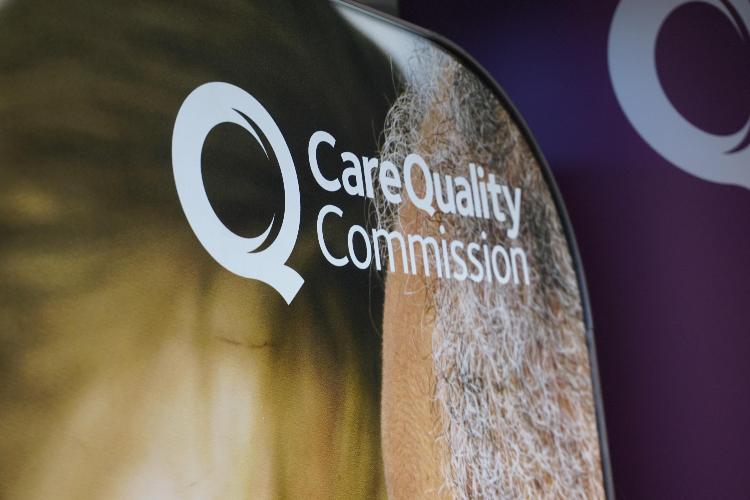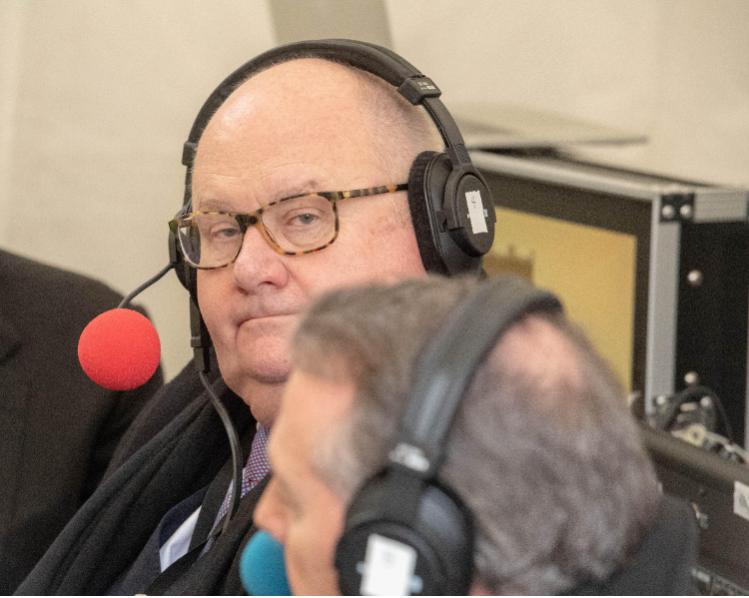"An unregulated merry-go-round": How some taking new roles after working in public service are causing controversy
9 Millbank, home to Ofsted (Scott Hortop Travel / Alamy Stock Photo)
8 min read
In a recent issue of The House, the head of the appointments body Lord Pickles called for reform of rules for those seeking work after leaving public office. Now Andrew Kersley reveals the full extent of the revolving door between senior regulators and the private sector.
Nearly half the senior regulators in the United Kingdom who left their roles in the last five years have since taken jobs in the sectors they once regulated, The House magazine can exclusively reveal.
Analysis by this magazine has shown that of the 146 senior executives and board members we identified who left regulators to take up new roles, 63 took jobs in sectors overseen by the agency they once worked for. Among those to take up such roles include a former Care Quality Commission (CQC) executive joining a social care start-up, the former leading executive of Ofgem joining Octopus Energy, and a former Ofcom board member becoming a paid consultant for the European arm of a Chinese state television channel.
There is no evidence that anyone named in this article has acted improperly or exerted undue influence as a result of their job moves. However, one anti-corruption charity has described the trend as an “unregulated merry-go-round” where “private interests can capture policy or regulatory decision making,” while Labour has claimed that “the principles of public life [are being] trampled all over” by the current government.
We need to make sure the system works properly to allow individuals to move on, while knowing that the integrity of government is protected
The potential for perceived conflicts of interest is particularly acute at the energy regulator Ofgem, where 13 senior leaders and board members departed for roles in the energy sector in the last five years, amounting to 68 per cent of the total, the highest of any UK regulator. That included former senior partner for consumers and competition Rachel Fletcher, who after a stint at Ofwat, was appointed the director of regulation and economics at Octopus energy. Before the move was finalised, the Advisory Committee on Business Appointments (ACOBA), which advises government on appointments, warned that Fletcher would have had access to “privileged information which may be seen to be of general use to any regulated company she chooses to join” and that “there are risks associated with her network of contacts and influence across the government and in the regulatory sector”. Fletcher, for her part, stressed that she had little involvement with Octopus in her previous roles at Ofgem and Ofwat and because she had spent several years working at Ofwat before joining Ofgem, she was not subject to current privileged information from Ofgem. Former Ofgem COO Sarah Cox took a role at private smart metering firm Smart DCC after leaving the regulator in 2020, despite a warning from ACOBA that her knowledge of Ofgem procedure, plans and network within the regulator could give the company an “undue advantage”.
One former senior partner, Martin Crouch, left to start his own energy regulation consultancy, which ACOBA warned posed a “significant risk” that Crouch would be seen by clients to be able to offer them an “unfair advantage through his consultancy”.
Cox stressed that she had not been involved in any financial or regulatory decisions with regard to Smart DCC and had not had significant contact with the group in her role at Ofgem, while Crouch promised to work for only public sector clients in the first three months of his consultancy. After leaving in 2020, former Ofgem CEO Dermot Nolan soon joined regulations consultancy Fingleton, while former board member Nicola Hodson joined power generation company Drax as a non-executive director after leaving the regulator. Drax faced widespread criticism this month after the BBC revealed that despite receiving billions of pounds in green energy subsidies from UK taxpayers, the company was cutting down environmentally-vital primary forest.
In the midst of skyrocketing energy prices, Ofgem was accused of allowing energy companies to “sway government policy in their favour” after it was revealed by OpenDemocracy that more than a dozen energy industry insiders were recruited into senior positions at the regulator. A Department for Business, Energy and Industrial Strategy spokesperson at the time said the claims were “ridiculous” and it was “right that, as the government department responsible for energy policy, we appoint people with experience in the energy sector” to senior roles. “Any potential conflicts of interest,” they added, “are always declared and properly managed as a matter of course”. Deputy Labour leader Angela Rayner told The House: “The revolving door has become a conveyor belt for those leaving office to line their pockets as soon as they leave government. The past decade under the Conservatives has seen the principles of public life trampled all over.”
 Care Quality Commission (indeMedia.net / Alamy Stock Photo)
Care Quality Commission (indeMedia.net / Alamy Stock Photo)
At health and social care regulator the CQC, some seven of the 16 departures since 2017 involved staff taking up roles in the health and social care sector, sometimes for roles in the NHS, but often also in the private sector. Former CQC strategy and intelligence head Malte Gerhold, for example, took a role at social care start-up Birdie after leaving the agency.
At Ofcom, eight of 18 board and senior executive departures joined the telecoms and media industries, including former content board chair Nick Pollard, who became a paid consultant for the European arm of the Chinese state news channel CGTN after leaving his role at Ofcom. Just over two years after he left CGTN, the channel had its UK broadcasting licence revoked and was eventually fined £200,000 by Ofcom for failing to comply with broadcasting rules.
At water regulator Ofwat, three of the eight senior departures in the period involved new roles in the privatised water sector, including former chief executive Cathryn Ross who last year joined Thames Water as its new strategy and regulatory affairs director. “The UK’s system for regulating the revolving door is utterly broken. With ACOBA seriously under-resourced and without teeth, it is hardly surprising that the very serious potential conflicts of interest this investigation exposes are going unchecked,” said Dr Susan Hawley, executive director of campaign group Spotlight on Corruption. “We desperately need ACOBA to be beefed up, put on a statutory footing, and for stronger rules to prevent an unregulated merry-go-round between business and regulators.“While bringing private sector expertise into government and the regulatory bodies is important, there is a real risk that without proper regulation, private interests can capture policy or regulatory decision making. This damages trust in these institutions but also undermines their effectiveness.”
In a recent issue of The House, ACOBA chair Lord Pickles also called for reform of the system. He wrote: “The system is advisory and widely criticised as toothless. We agree. ACOBA and many other ethics bodies, including the Committee on Standards in Public Life, have recommended major reform; some critics even call for a new statutory system.”
 Lord Pickles ( Ian Davidson / Alamy Stock Photo)
Lord Pickles ( Ian Davidson / Alamy Stock Photo)
Pickles went on to recommend “basic changes” to the system, including a “clear risk profile”, a sanctions regime, and “assurance across government departments”.
“Movement between public service and other sectors is a good thing; we need to make sure the system works properly to allow individuals to move on, while knowing that the integrity of government is protected,” he added.
The House analysed the last five years of annual reports at the UK’s 13 biggest regulators to establish the total number of executive and board departures in that period.The regulators analysed were: the Competition and Markets Authority, Care Quality Commission, Civil Aviation Authority, Ofwat, Ofgem, Ofsted, Ofcom, HMRC, the Environment Agency, the Housing Ombudsman, the Health and Safety Executive, Gambling Commission and the Financial Conduct Authority. Across the agencies, 146 board members or senior executives left their roles and took up identifiable new positions elsewhere during the period in question. We were unable to verify the current roles or positions of a further 22 leading executives, while an additional small number left their posts due to retirement, death or for career breaks. While some of the figures included non-executive directors, who take a less active role in the operation of the organisations they work with, many were senior executives and multi-decade veterans of the civil service with intimate inside knowledge of how UK regulators function.
The investigation follows a report by the Committee on Standards in Public Life last year, Standards Matter 2, which called for “significant reform” around the business appointment rules and the powers of ACOBA, adding that “the lack of any meaningful sanctions for a breach of the rules is no longer sustainable”. The government has yet to deliver a formal response.
Shadow paymaster general Fleur Anderson criticised the government for failing to deliver a formal response to the Committee. She added: “ACOBA is a completely toothless and ineffective watchdog presiding over weak rules and decisions with no binding force. Those who have had significant and direct responsibility for relevant policy, regulation, or the awarding of contracts should be subject to strengthened business appointment rules.”
